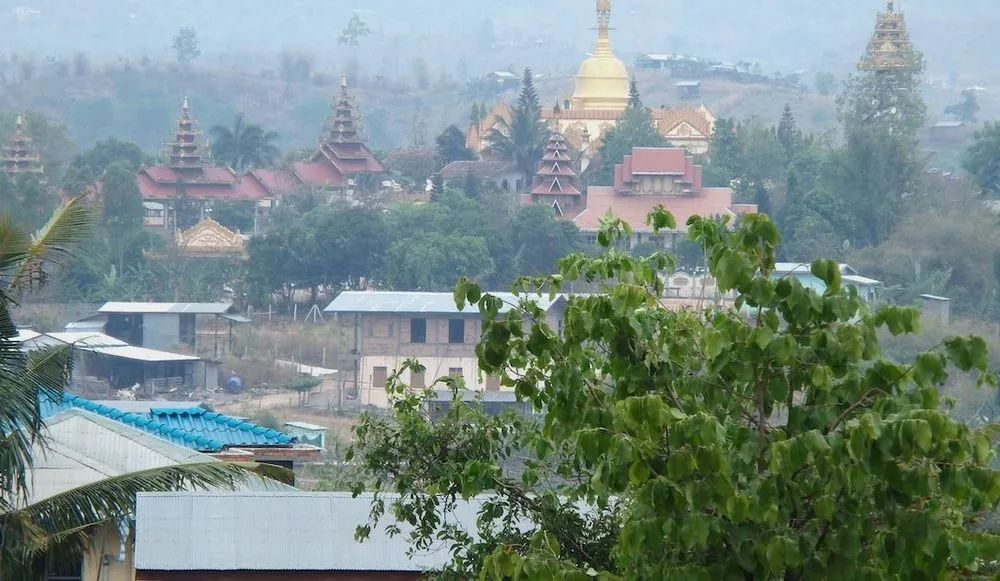Investigators trace $100 million in crypto payments to Myanmar scam syndicate
Two cryptocurrency addresses linked to a company operating out of a notorious scam compound in Myanmar have received nearly $100 million worth of deposits in less than two years, investigators have found — shedding light on the lucrative business of both conducting romance scams and extorting ransom payments from the families of trafficked workers.
The joint investigation between the blockchain watchdog Chainalysis and a researcher with the human rights organization International Justice Mission took a look at scamming operations within KK Park, a criminal zone along the border with Thailand. Satellite imagery of the site along the Moei River shows row after row of recently constructed buildings where thousands of workers are reportedly held against their will.
From the compounds they are forced to carry out pig butchering scams, which typically involve a fraudster forming a relationship with a victim on social media, dating sites or messaging platforms and tricking them into making fraudulent investments.
The investigation began when Eric Heintz, an analyst at IJM’s Global Fusion Center, sent Chainalysis two cryptocurrency addresses where trafficked victims and their families were instructed to make ransom payments to secure their release. According to Heintz, the addresses are connected to a Chinese front company for a scamming gang operating out of KK Park.
“We see that while the addresses were provided to victims’ families as a means of ransom payment, both have also received significant funds from a number of known scam addresses,” Chainalysis wrote.
Since they were created in July 2022, one address has received $24.2 million in crypto deposits from four “scam-associated” wallets, while “some portion” of inflows to the second address are also likely from romance scam payments.
The rest of the payments are believed to be from ransoms extorted from the families of workers, who are often instructed to pay upwards of $30,000 for their release.
“Given that these are just two addresses from a single company operating out of KK Park, we can infer that on the whole, pig butchering scammers working out of the compound are making significant sums,” they wrote.
“Our on-chain analysis shows how tightly interwoven pig butchering gangs’ ransom-taking operations are with their primary business of conducting romance scams. … Not only are consumers being bilked out of hundreds of millions of dollars each year, but the gangs behind those scams are also perpetuating a humanitarian crisis.”
A recent United Nations Office on Drugs and Crime report highlighted the role of the stablecoin Tether (USDT) in fueling the Southeast Asian scamming economy, calling it “among the most popular cryptocurrencies used by organized crime groups, demonstrated by a surging volume of cyberfraud, money laundering, and underground banking-related cases.” Stablecoins are pegged directly to the value of regular currency — in Tether’s case, the U.S. dollar.
According to Chainalysis, however, as of recently the “the cryptocurrency ecosystem is taking action.” Tether collaborated last November with the U.S. Department of Justice and froze $225 million in USDT tokens connected to a pig butchering syndicate.
After warnings by human rights groups, law enforcement and financial fraud watchdogs for years, pig butchering's media profile has recently started growing.
"From now on, whenever you get a sexy text from a new stranger, good luck not thinking 'is this a man just beaten in a work camp in Myanmar?'” John Oliver said in a “Last Week Tonight” segment on the issue that aired on Sunday.
James Reddick
has worked as a journalist around the world, including in Lebanon and in Cambodia, where he was Deputy Managing Editor of The Phnom Penh Post. He is also a radio and podcast producer for outlets like Snap Judgment.


